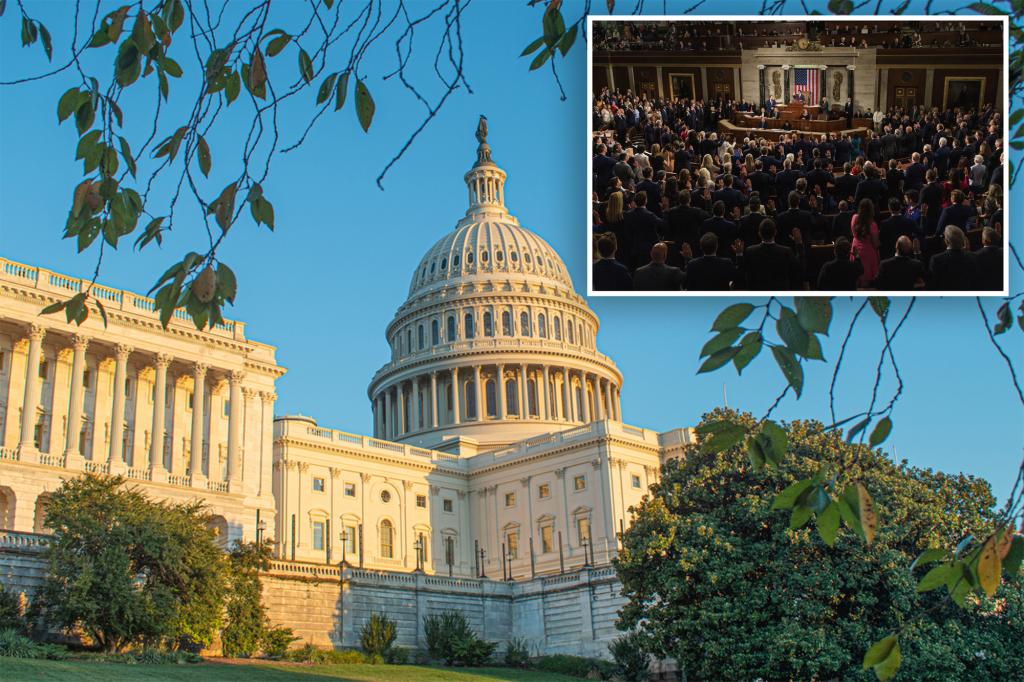The Congressional Progressive Staff Association (CPSA), a group representing approximately 1,500 progressive Capitol Hill staffers, recently ignited a firestorm of bipartisan criticism with a proposal for a 32-hour workweek. The initial request, presented in a letter to congressional leaders, suggested a rotating schedule that would allow staffers to work fewer hours when lawmakers were away from Washington D.C. and operating in their districts. The rationale behind this proposal was the demanding nature of their work, characterized by long hours and intense pressure, which often led to burnout and high staff turnover. The CPSA argued that a shorter workweek wouldn’t necessarily decrease productivity, but would instead foster a more sustainable work environment, benefiting both staffers and the offices they served.
The swift backlash to this proposal was remarkable for its breadth and intensity, crossing party lines and drawing condemnation from lawmakers, current and former staffers, and even political commentators. Critics labeled the request as “tone-deaf” and “insulting,” highlighting the perceived disconnect between the staffers’ desire for reduced hours and the demanding realities faced by the American public they were supposed to serve. Many pointed to the numerous pressing issues confronting the nation, arguing that demanding shorter hours amidst such challenges was a sign of misplaced priorities. Some critics suggested that those unwilling to commit to the demanding hours required of congressional staff should seek employment elsewhere. The overwhelming negative response signaled a deep-seated belief in the importance of dedication and long hours in public service.
The CPSA’s initial argument rested on the belief that the intensity of their work, often requiring long hours and navigating complex policy issues, led to burnout and high staff turnover. This, they contended, negatively impacted both the staffers and the offices they served, as the constant need to replace and train new personnel disrupted the continuity and effectiveness of congressional operations. They posited that a 32-hour workweek, implemented on a rotating basis, could mitigate these challenges by providing a more sustainable work rhythm without significantly impacting productivity. They envisioned a system where staffers could maintain a healthy work-life balance while still effectively serving their constituents.
The criticisms leveled against the CPSA’s proposal were multifaceted and came from various quarters. Some questioned the timing of the request, given the numerous pressing national issues requiring immediate attention. Others considered the demand a sign of entitlement and a lack of appreciation for the hard work and long hours that characterize many professions across the country. The critics argued that congressional staffers, entrusted with serving the public, should be prepared to dedicate the necessary time and effort to fulfill their responsibilities, irrespective of the challenges involved. The swift and widespread condemnation underscored a shared sentiment that public service demands a certain level of sacrifice and dedication.
The CPSA responded to the barrage of criticism by swiftly withdrawing their initial proposal. In a subsequent statement, the organization acknowledged the shortcomings of their letter, emphasizing their members’ dedication to serving the American people, regardless of the hours required. They reaffirmed their commitment to addressing the existing workplace issues that contribute to staff burnout and turnover, but conceded that a 32-hour workweek was not a viable solution at the present time. The statement signaled a recognition of the political miscalculation and an attempt to refocus the conversation on the broader issues of staff well-being and workplace conditions on Capitol Hill.
While the CPSA’s proposal for a 32-hour workweek quickly unraveled under the weight of bipartisan criticism, it ignited a conversation about the challenging working conditions on Capitol Hill. The debate highlighted the tension between the demands of public service and the need for a sustainable work environment. Although the 32-hour workweek was deemed unrealistic in the current political climate, the episode underscored the importance of addressing the underlying issues that lead to staff burnout and high turnover. The CPSA’s subsequent statements suggest a renewed focus on finding alternative solutions to improve workplace conditions for congressional staff, while acknowledging the necessity of dedication and long hours in fulfilling their responsibilities to the American people. The conversation sparked by their initial proposal may ultimately pave the way for more productive discussions about fostering a healthy and sustainable work environment in the demanding world of Capitol Hill.

